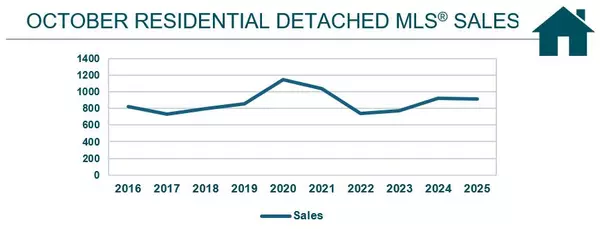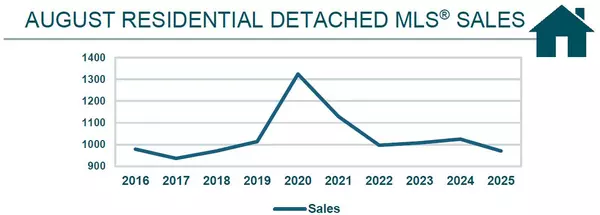
The Homesteads Act in Manitoba and homeownership
Homeownership in Manitoba is not only an investment in property but also an opportunity for financial security and personal independence. The Homesteads Act in Manitoba plays a key role in protecting homeowners, particularly in family situations, by safeguarding property rights in various scenarios.
This guide will provide an overview of the rights and protections afforded by The Homesteads Act and what these mean for homeowners today.
Understanding The Homesteads Act in Manitoba
The Homesteads Act was created to protect the primary residence of a married or common-law couple by ensuring that both parties have a say in significant decisions regarding the property.
Enacted in the early 20th century and updated over the years, the Act is part of Manitoba's family property laws and applies only to the primary residence, known as the "homestead," of married or common-law couples.
The Homesteads Act in comparison to The Family Property Act
The Homesteads Act:
-
Consent Requirement: Both spouses or common-law partners must consent to the sale, mortgage, or transfer of the homestead. Even if only one partner is listed as the legal property owner on the title, the decision must be made by both.
-
Homestead Rights Upon Death: In cases where a partner passes away, The Homesteads Act protects the surviving spouse or partner’s right to remain in the home. This provision ensures that the surviving partner is not forced to sell or vacate the property due to inheritance claims or external pressures.
-
Protection Against Creditor Claims: The Homesteads Act provides some protection against creditor claims if one partner incurs debts. Creditors cannot force the sale of a homestead to satisfy debts unless both partners have consented to the mortgage or loan associated with the debt.
The Family Property Act
- Purpose: The Family Property Act governs the division of property between spouses or common-law partners when a relationship ends, either due to separation or divorce. It applies to all types of property, not just the primary residence.
- Scope: It focuses on the fair distribution of assets accumulated during the relationship, including pensions, investments, and personal assets.
- Key Provisions: The act provides a process for the accounting and equalization of family property. It may include considerations of financial contributions, debts, and other factors to reach a fair division.

Who Has Homestead Rights?
- Eligibility: Both married spouses and common-law partners of the property owner on title can have homestead rights.
- Common-Law Partnerships: A common-law partnership qualifies if:
- It is registered with Vital Statistics, or
- The couple has lived together in a committed relationship for at least three years.
- One Partner with Homestead Rights: Only one spouse or partner can have homestead rights at any given time. If there’s a former spouse or partner with homestead rights, those rights must be resolved before a new spouse or partner can gain homestead rights to the property. Scenario's where this may happen are as such;
- The previous spouse/common-law partner has given up or lost their rights to the homestead.
- The previous spouse/common-law partner's ownership interest has been transferred.
- Any claim for dividing assets (under The Family Property Act) has been settled.
- The Homesteads Act applies to married people and those in common-law relationships under 18 and is treated the same as an adult.
- The family farm is covered by The Homesteads Act, including the farm's main dwelling and up to 320 acres of land.
When is Homestead Consent Required?
- The parties involved must be either married or in a common-law relationship as defined by The Homesteads Act.
- The property must be the homestead property as defined by The Homesteads Act. There can be only one homestead at a time.
- The property must be registered on the certificate of title by only one owner, in the marital or common-law relationship.
Exceptions to Disposition Without Consent
An owner cannot sell, transfer, or give away their homestead during their lifetime unless:
-
- Consent: The owner's spouse or common-law partner agrees in writing.
- In Favor of Spouse/Partner: The property is being given to the spouse or common-law partner.
- Release of Rights: The spouse or partner has given up their rights to the homestead in writing.
- Additional Interest: The spouse or partner has a legal interest in the property and is involved in the transaction.
- Court Order: A court has given permission to proceed without the spouse's or partner’s consent.
Key Scenarios Where the Homestead Act Applies
The Homesteads Act is central to family law in Manitoba. Its primary purpose is to protect the home and prevent a spouse or partner from being unfairly displaced or financially disadvantaged due to property decisions made without their consent. This is particularly important during separation, divorce, or death.
How The Homesteads Act Protects Homeowners:
-
Sale of the Family Home: The Homesteads Act requires that both partners provide consent before the sale, mortage, or transfer of the property. Even if only one partner is the legal owner, the property cannot be sold without both partners’ signatures.
- Refinancing or Taking a Loan Against the Home: If a homeowner seeks to refinance the mortgage or take out a loan against the home, both partners must consent. This provision protects the non-titleholding partner from unexpected debt burdens.
-
Right to Occupy: If a partner passes away, the surviving partner has the legal right to continue living in the homestead. This provides crucial stability, especially for those who may have limited financial resources or are reliant on the home as their primary residence.
-
Fair Division During Divorce: In cases of separation or divorce, The Homesteads Act plays a role in ensuring an equitable division of the family home. This means that both parties have rights to fair consideration, even if one partner is not on the property title.

The Homesteads Act and Real Estate Transactions
The Homesteads Act introduces a layer of protection for homeowners but also requires additional steps in real estate transactions involving married or common-law couples. In practice:
-
Legal Documentation: For any real estate transaction involving a homestead, both partners must sign off on the sale, mortgage, or transfer. This documentation is often verified through a Homestead Consent Form, which is a legal requirement in Manitoba.
-
Title Searches and Verification: Real estate lawyers, when handling transactions requiring the transfer of the homestead, typically verify the marital or common-law status of the seller to ensure compliance with The Homesteads Act.
-
Involvement of a real estate agent: When working with married or common-law couples, a REALTOR® plays an important role by advising clients on the necessity of joint consent for property transactions, ensuring that all parties are informed and involved in decision-making. Your REALTOR® will ensure all forms are signed when required.
The Homesteads Act Requires Additional Documents
When The Homesteads Act is involved in selling or refinancing a property in Manitoba, there is additional documents to ensure compliance. Here’s an idea of what to expect:
1. The Homesteads Act Consent to Disposition and Acknowledgement Form
This is required by The Homesteads Act if you’re disposing of the primary residence (the “homestead”) and you’re married or in a common-law relationship, both parties must complete and sign the homesteads Act Consent to Disposition and Acknowledgement form.
This consent is on the residential and condominium offers to purchase or it can be a seperate form. It verifies that both partners agree to the transaction, regardless of whether only one partner is on the title.
- Notarization of Documents
A consent to a disposition or a change of homestead must be made before a person authorized to take affidavits under The Manitoba Evidence Act. A Notary Public, such as a Real Estate Lawyer, as well as a Commisioner of Oaths are both entitled to take affidavits and will oversee the notarization of these documents. This is on The Homesteads Act Consent to Disposition and Acknowledgement form.
2. The Sellers Homesteads Act Statements Form
The Sellers Homesteads Act Statements form provides assurance to the buyer that they have a valid, enforceable and binding contract with the seller by having the homestead status of the property verified by the owners. This form is available from your REALTOR® and establishes the relationship, ensuring compliance with The Homesteads Act.
3. Additional Signatures
If only one person’s name is on the property title, both partners will still need to sign off on the sale or refinancing documents to meet the requirements of The Homesteads Act.
In practice, while The Homesteads Act does add a few additional documents, it doesn’t create a heavy burden as long as you work with your REALTOR® and other professionals who can guide you through each step.
Additional Laws for Property on First Nation Reserves
In addition to The Homesteads Act, The Family Homes on Reserves and Matrimonial Interests or Rights Act is a federal law that governs the division of family homes and other matrimonial real property on First Nation reserves for married spouses and common-law partners. It addresses gaps in property division on reserves, where provincial property laws typically do not apply.
Key Points:
- Purpose: This law ensures fair treatment regarding the division of property on First Nation reserves during the dissolving of a relationship or the death of a spouse or partner.
- Applicability:
- The rules apply to First Nation communities in Manitoba unless the community has enacted its own laws about matrimonial real property.
- First Nations can create their own laws under this act.
- Enforcement Date: The law came into effect on December 16, 2014.
Final Thoughts: Homeownership and Protection Under The Homesteads Act
The Homesteads Act of Manitoba is a critical protection for family property rights, ensuring that homeownership remains a source of stability and security for couples and families. It’s especially vital in situations of marital split, death, or financial hardship, providing a fair and equitable framework that supports the rights of both partners.
Whether buying, selling, or refinancing a home, understanding The Homesteads Act can help homeowners in Manitoba make informed, secure decisions about their property.
For couples and families considering homeownership in Manitoba, being aware of The Homesteads Act is essential to ensure peace of mind, legal protection, and fair treatment in all property-related matters. A REALTOR® and legal advisor can provide guidance on navigating these requirements, ensuring that your rights and best interests are upheld in every step of your homeownership journey.










 REALTOR®
REALTOR®


